This Guy Became The Envy Of The Neighborhood After Digging A Hole In His Yard
We all want to live the American dream. We want a big house, a yard for our kids and our dogs to run in, and a project that will be the envy of the neighborhood.
Well, Wayne Martin had a house and a yard, and decided to get to work on a large-scale project to really set his home apart from the rest. So naturally, he started digging! While the rest of his neighborhood thought he was nuts, they quickly realized he had an amazing plan for his backyard. It's pretty crazy what Wayne did with this giant hole, but it's definitely one of the most ambitious projects we've ever seen!
What Was He Going To Do With That Hole?
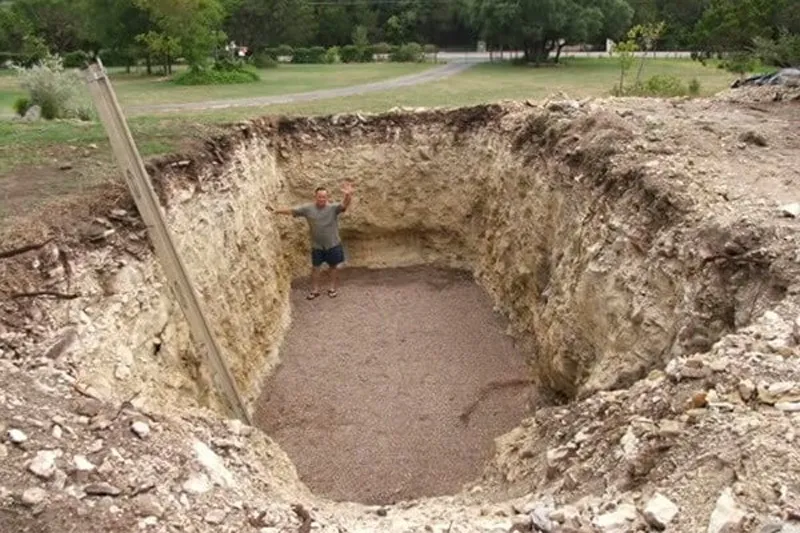
The first thing I would have thought if I came across one of my neighbors digging a hole this size is that they have plans for an in-ground swimming pool. Frankly, even if it was just a giant swimming pool, I think his entire neighborhood would be jealous.
However, Wayne decided to fill that hole with something more than water. After laying down some gravel, he brought in something that definitely doesn't fit in any pool. Neighbors quickly took notice once Wayne brought a 20-foot shipping container onto his lawn.
Buying A 20-Foot Container
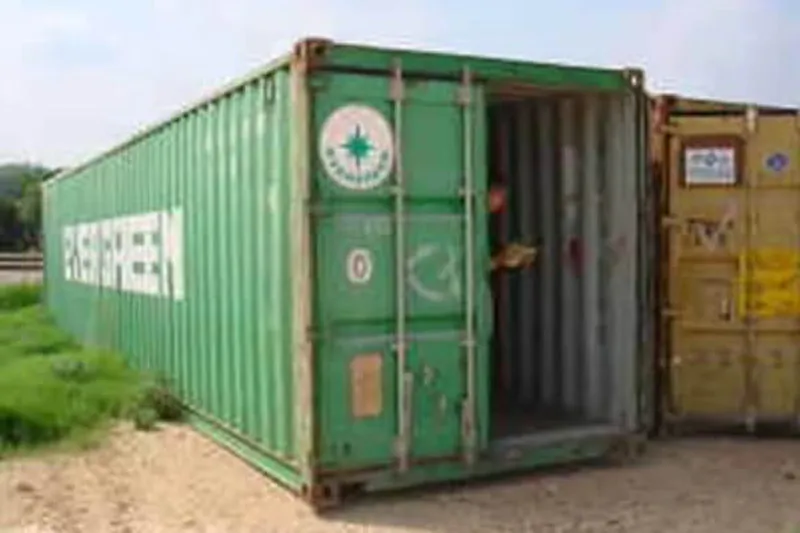
So before Wayne even started digging a hole, he went out and purchased a 20-foot shipping container. It's pretty surprising how many of these giant containers you can find out on the internet at incredibly affordable prices.
As any DIYer knows, one of the most important things to do is keep costs low. It can be incredibly easy to lose track of your spending and splurge on products you don't actually need. The fact that Wayne was able to find a container of this size and keep his budget low really helped make his project come together. But what did he need the container for exactly? We'll find out soon!
Sealing It Up
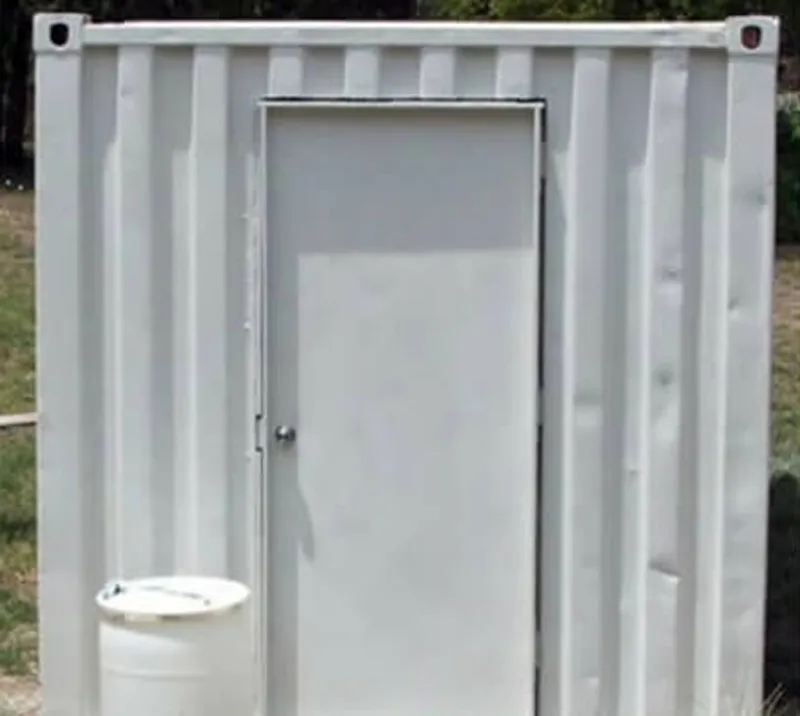
The first step after purchasing his container was making sure to seal it shut. Instead of using the giant double doors, Wayne instead made sure to seal them shut and instead installed a swinging door on the other side.
He didn't just seal those doors though — he made sure nothing could get in or out, especially leaks. The other important thing he did was made sure that the door he installed swing inward, not outward. He now had a one-way entry point to his container. Trust me — this will make a ton of sense once you see what he did next!
Measure Twice, Dig Once
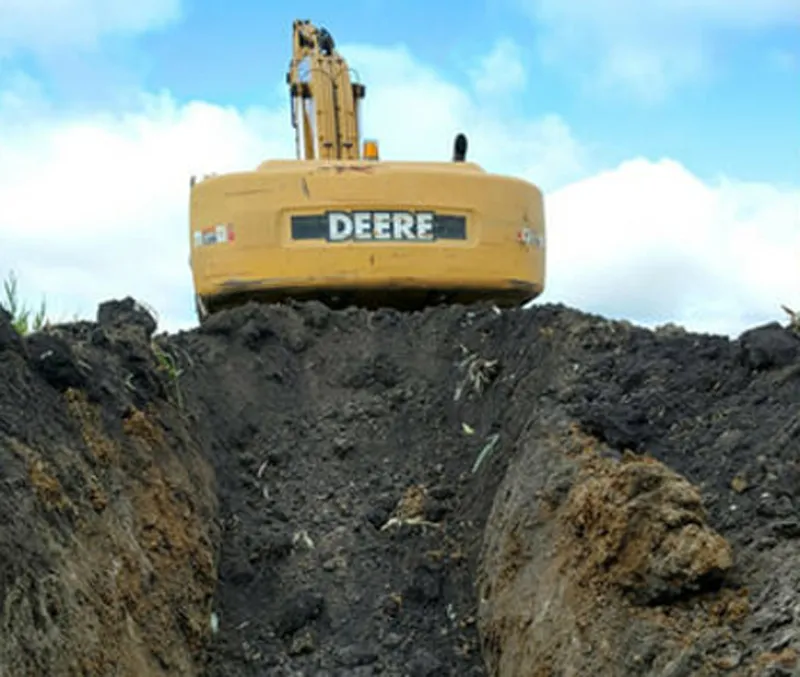
The biggest mistake Wayne could have made was digging a hole that was too small for his container. So he made sure to make the hole at least two feet deeper than the height of the container.
He also left about two feet of space on all sides of where the container would be placed, and extra room around where the door would swing out. Wayne would have run into some trouble if he hadn't thought of that first!
He Lined the Bottom With Pea Gravel

Wayne also lined the bottom with a layer of pea gravel. This was incredibly important because the container needed a soft place to lie on while also being able to filter through to the soil below.
At this point, I think you know what he had planned for the container and the hole, but what was the goal of his project? Well, there's a reason that he wanted a bit of extra room above the container.
Sometimes You Still Need To Call In A Pro
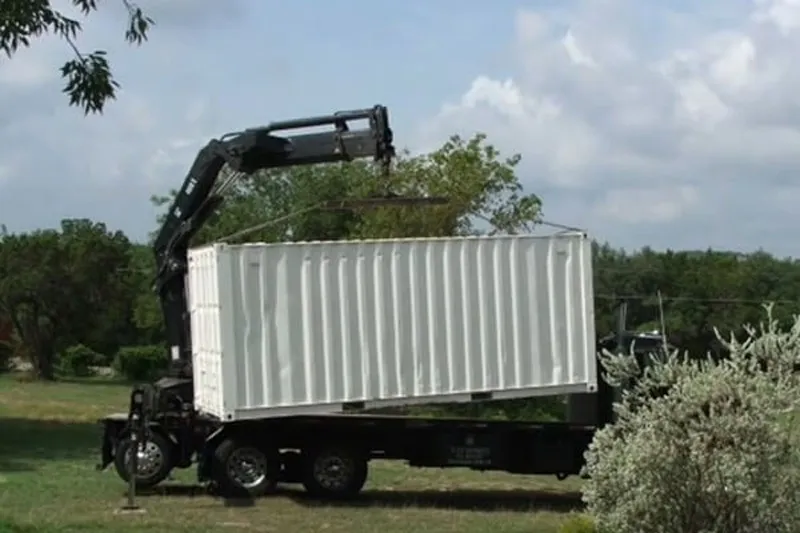
Even though a lot of this project is meant as a DIY project, sometimes you just have to reach out to a professional. Not everyone has a crane that can pick up a 20-foot container and lower it into a giant hole in their lawn, so Wayne called in a septic tank company to do the dirty work for him.
Honestly, this was a much better idea than trying to round up some friends to try and figure out a way to get the container down there. So the container's in the hole now, but what is Wayne's plan? It's a little more intricate than you might think.
Fits Like A Glove
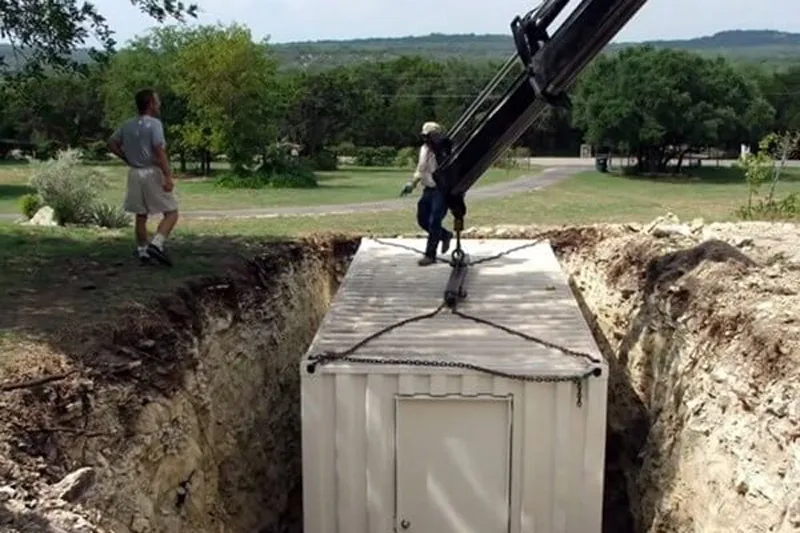
So there are plenty of reasons to make the hole a little bigger than the container, and it's more than just a little bit of wiggle room. Wayne lefter about two feet of space on each side, as well as a few feet in front of the swinging door.
Now that the container is in the hole, the real project begins. It might seem pretty obvious what Wayne has planned, but I guarantee the finished product will really inspire you to up your DIY game.
Every Bunker Needs A Sump Pump
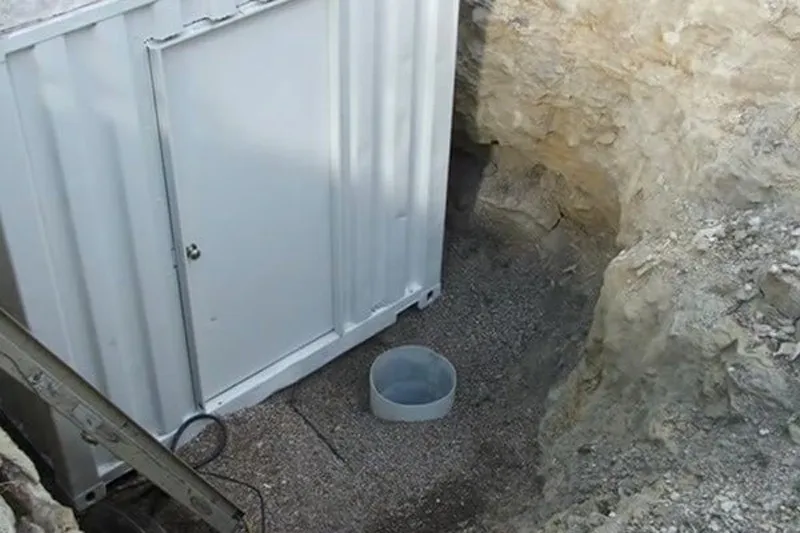
So a sump pump is a piece of equipment used in plumbing that helps drain water out of enclosed spaces. This is a very crucial piece to the puzzle when you're putting anything below ground. It allows you to keep your bunker above the water line, so you generally find these in basements.
The last thing you want for your underground bunker is for a flood to ruin anything you put inside it. But what was Wayne planning on putting inside his bunker exactly? The answer to that question is coming up in just a bit.
An Entrance Fit For A King
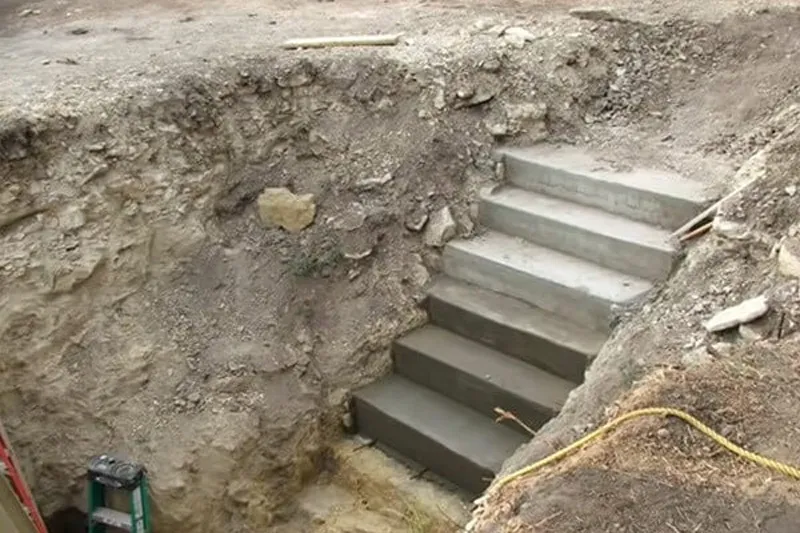
Naturally, when you're making an underground bunker, you need to have a way to get inside it. Wayne did the logical thing and laid down a set of concrete steps and made sure the top stair was at the same level as the top of his bunker.
I think most people would prefer a simple staircase to something like a ladder or a fire pole to slide down. Now that he had his bunker in the ground and the stairway complete, Wayne could set out on completing the exterior and get ready to outfit the inside.
Everyone Needs A Support Beam
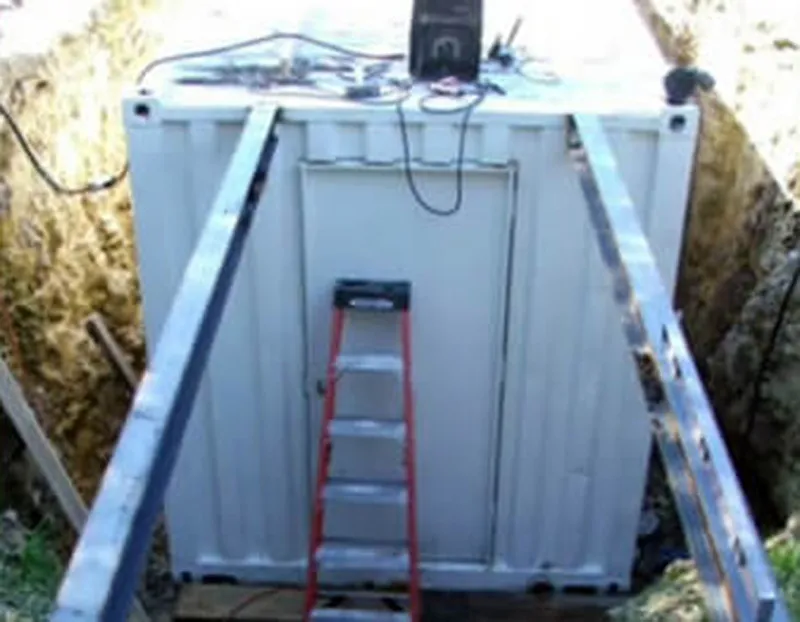
Wayne was very smart to install these two I-beams to ensure his bunker was as stable as possible. You probably wouldn't think that a giant 20-foot container could move much, but the ground could easily shift and leave his bunker unbalanced.
These two beams actually served another purpose. Not only were they there to provide support for the bunker, but they also acted as a frame for some of Wayne's other plans for the exterior of his underground bunker. What else does Wayne have planned anyway? You'll see in just a bit.
Is He Making A Roof?
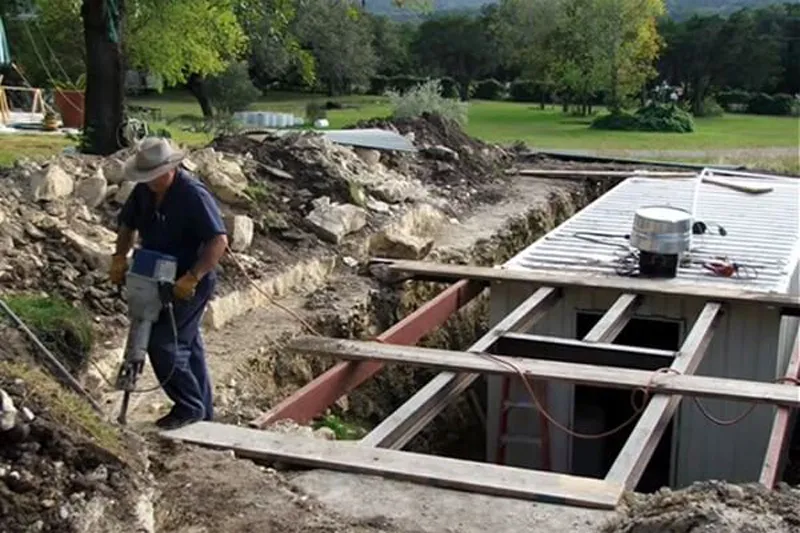
I guess I didn't consider that when you're installing an underground bunker, you need to take the necessary precautions to make sure the roof is stable too. Wayne added a tone of framework on top to support a roof, which makes a ton of sense why he added the I-beams in the first place.
This also helps show just what he has in store for the rest of the bunker. I'm glad he made sure to dig that hole a little extra deep because this looks like it's going to blend in perfectly with the rest of his yard.
An Underground Roof
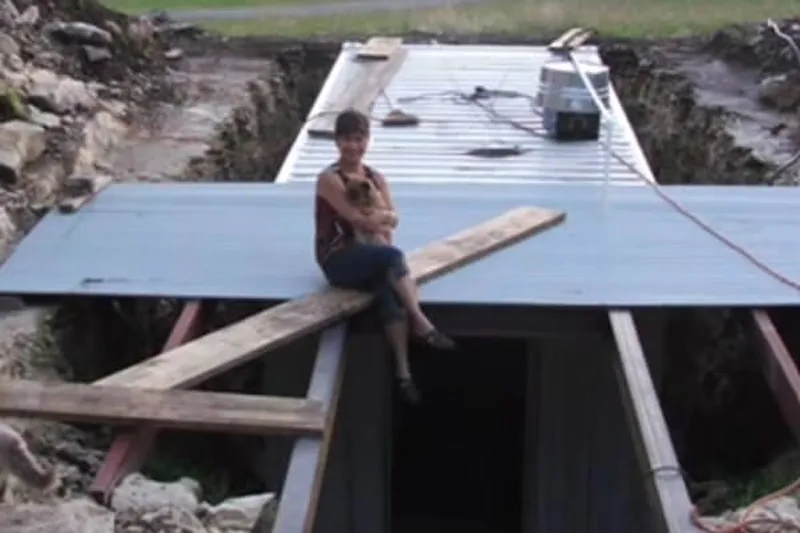
It's kind of hard to think about a roof being underground, but that's precisely the plan here. Wayne laid down heavy sheets of metal down across the framework that is stable enough to support a person's weight... and even a dog!
Obviously, this is just the first steps to laying down the roof, but it gives us a great idea of what they had planned. Now that the exterior was taking shape, we still need to know what's going on with the inside of the bunker. What's he planning on putting in there anyway?
More Than Just A Staircase
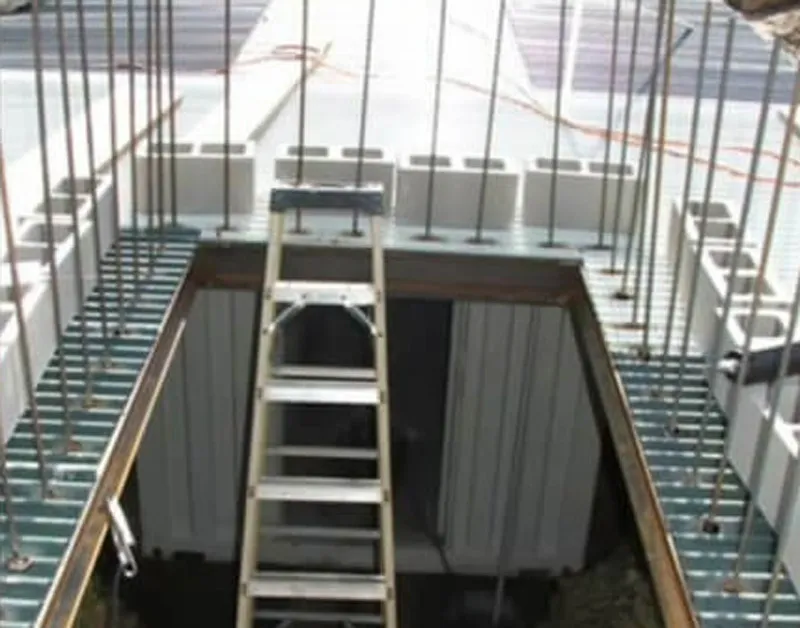
We already shed some light on how the staircase would be the only way in and out of the bunker, but Wayne wasn't satisfied with just a regular entranceway. Once he had the roof all set up and secure, he got to work making a grand entranceway for his bunker.
He left an opening from the roof and set up some rebar to help keep everything supported. This is such an underrated aspect of his whole project. Why go to the trouble of all of this if you're going to have a simple entranceway? Go big or go home.
Piling On The Concrete Blocks
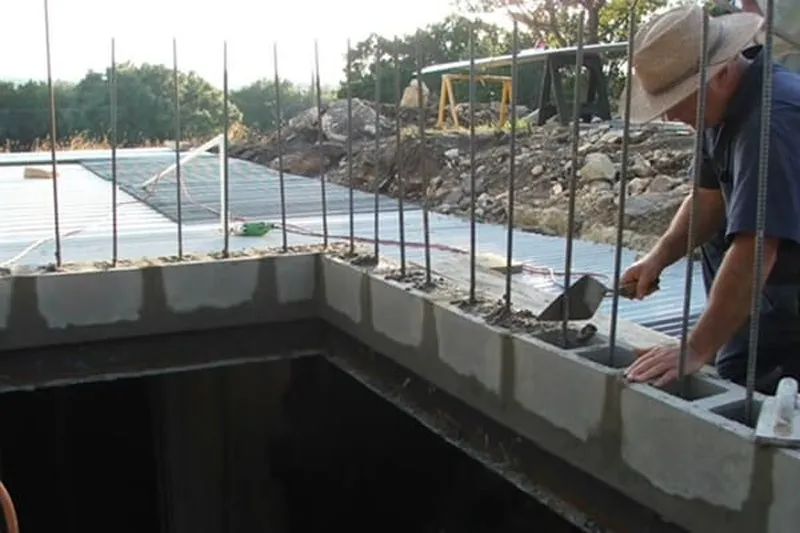
Obviously, Wayne took safety very seriously when he was putting together his bunker. Not only did he make sure that his bunker was safe and secure in the ground, but he also made sure that everything was up to code.
This was clearly built to last, and it almost seems like this could work as a makeshift shelter if need be. But is that what Wayne's been building this whole time, or does he have a different plan for his underground bunker?
Pump That Air In
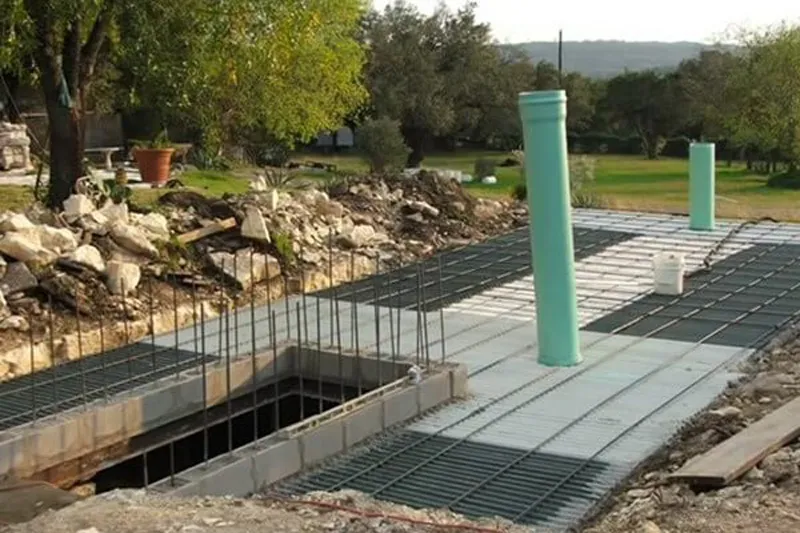
As crucial as it was to make sure there was a sump pump installed to make sure that water could be filtered through the soil, the most important addition was the air vents. You probably won't be able to last very long underground without access to fresh air, so Wayne made sure to install two 12-inch air vents in the front and back of the bunker.
This is probably a good indicator that Wayne plans to spend a good amount of time in his bunker, but for what reason? It's actually way more practical than you might think.
Time To Pour The Concrete
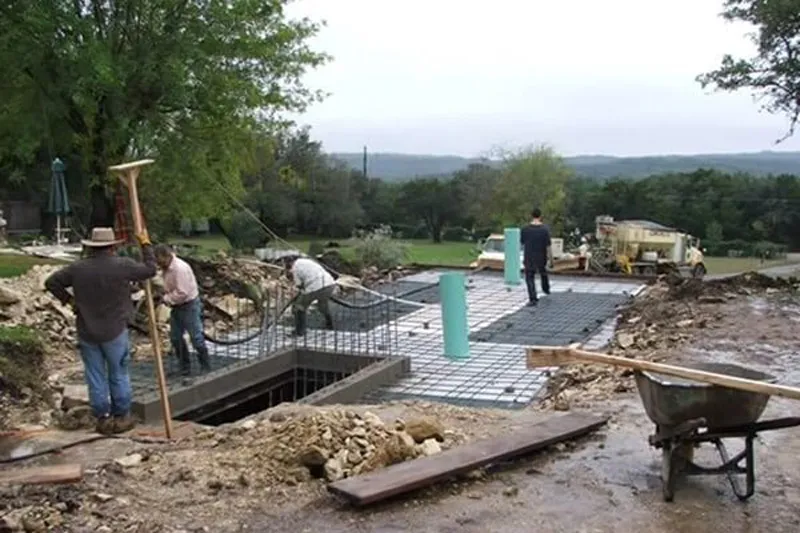
You might have thought that everything was already in place, but Wayne wasn't taking any chances. The ground can move and shift, especially in the winter when it freezes, so Wayne made sure to encase his bunker in concrete along the sides as well as on top of the roof.
As you can see, this is a perfect pour. Everything looks nice and smooth, and should be able to fit in perfectly with the rest of his yard. You can see how much of his yard has been taken over by this project, but it's quickly coming together and is all going to be worth it in the end.
Six Inches Of Separation
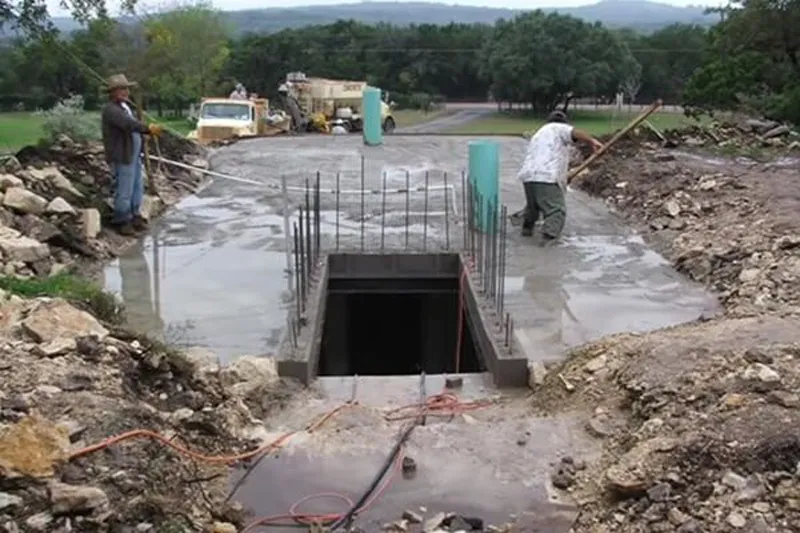
If you thought that Wayne just put a thin layer of concrete over his bunker, you'd be dead wrong. He made sure to put six inches over the top, which is surprisingly thick. It looks like he plans on making his bunker safe and secure, and able to take a beating, whether it be rain, sleet, or snow.
Now that he has his bunker set up to protect against anything life has to throw at it, he can get to work on the interior of the project.
Even More Blocks
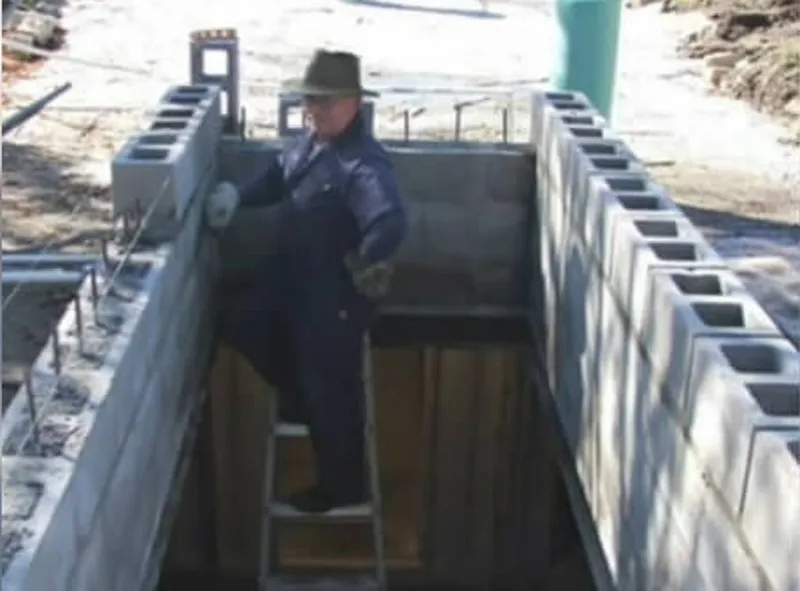
Once all that concrete dried, Wayne went back to basics and added even more cinder blocks through the rebar to his entryway. Clearly, he wanted the entryway to stand out and really be protected.
As the only part of the bunker that would have to deal with the elements, more protection is always better. That door is definitely going to take a beating over the years, so any way you can block out things like poor weather conditions or animals, the better. Now that he's finally done the outside, we can take a trip down those steps to see what the inside is like!
Removing The Temporary Support Beams
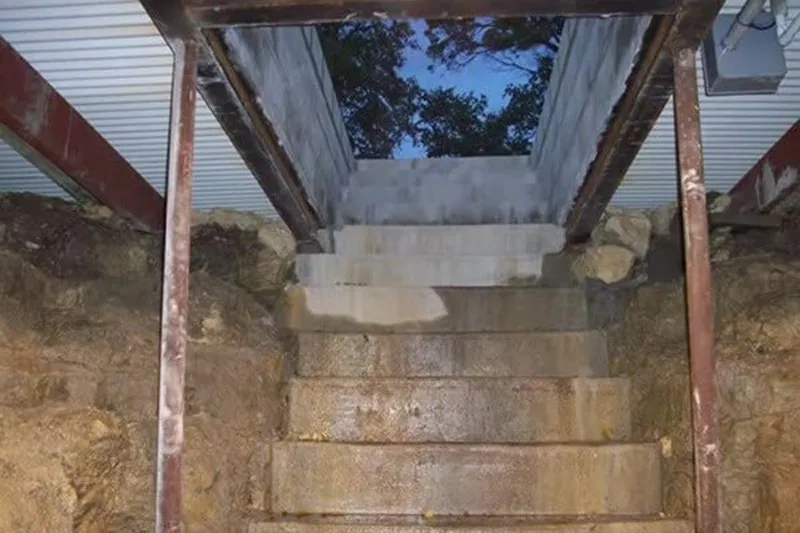
As we've said time and time again, when doing a project like this, safety is key. There's absolutely no reason to cut corners and not take every precaution necessary that your bunker is safe and secure. And when you're spending this kind of time and money, it just doesn't pay to take shortcuts.
So once the concrete dried and was stable, Wayne could finally remove the support beams that helped keep the roof secured. All those cinderblocks looked like they were for show, but they all helped provide the foundation for a perfect bunker.
Fill In The Soil Around It
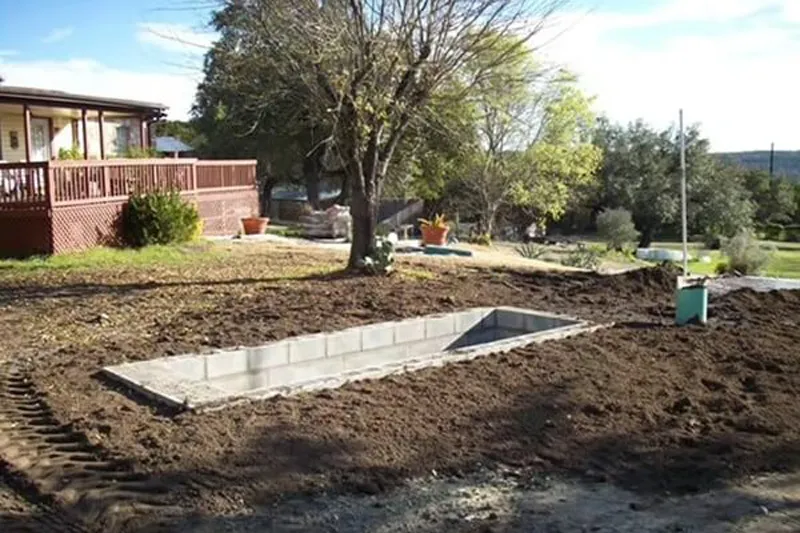
The last thing you want is for you bunker to be sitting out in the middle of your yard in a dirt pit, so Wayne made sure to use some high-end soil to fill the space surrounding the entrance. That means he can go back once everything is done and plant some plants to help it blend in and fit with the rest of his lawn.
You can see that the finished product won't even make it look like there was a giant hole there in the first place. And I doubt anyone will expect to find a bunker laying underneath.
Wait, Is That Wine?
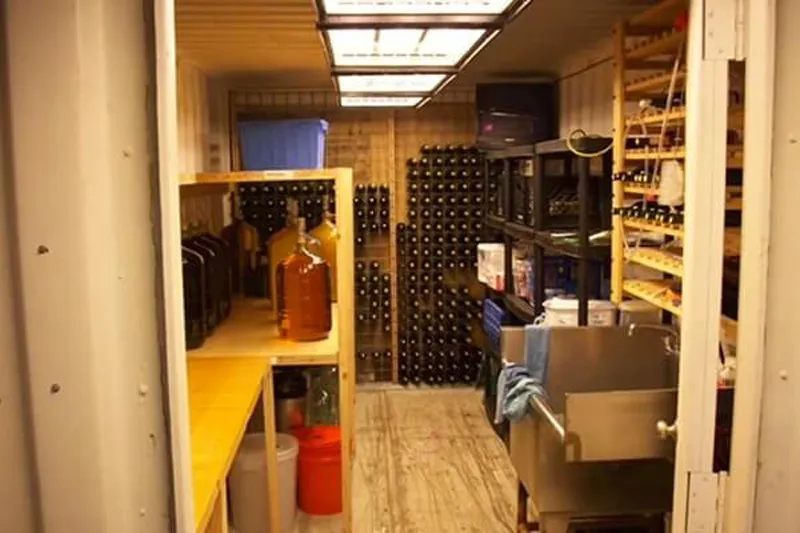
I don't know what I was expecting, but I don't think I was expecting this cellar to be filled with wine. However, it makes a lot of sense. Wine and other liquor (is that bourbon, I see?) are best stored underground, and the cool atmosphere should help it last for generations to come.
But is that the only reason he built this bunker, or does he have even bigger plans for this cellar?
More Than Meets The Eye
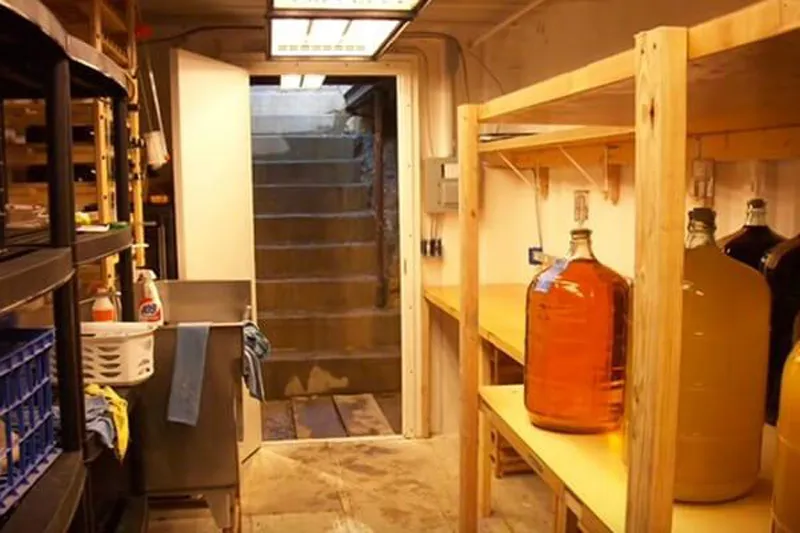
The great thing about a container like this is that it can fit so many different needs. As you can see from the back, there is plenty of room for storage, so while he has plans for filling it with wine, it could also be a great place to store your Christmas decorations or non-perishable foods in case of an emergency.
Imagine that something bad like a natural disaster happens? Now Wayne has a shelter built to meet his needs if he needs to hunker down for a couple of hours, or even a couple of days. And the best part is that it doesn't take up any space in his yard because it's all underground!
The Plans Are Available to All
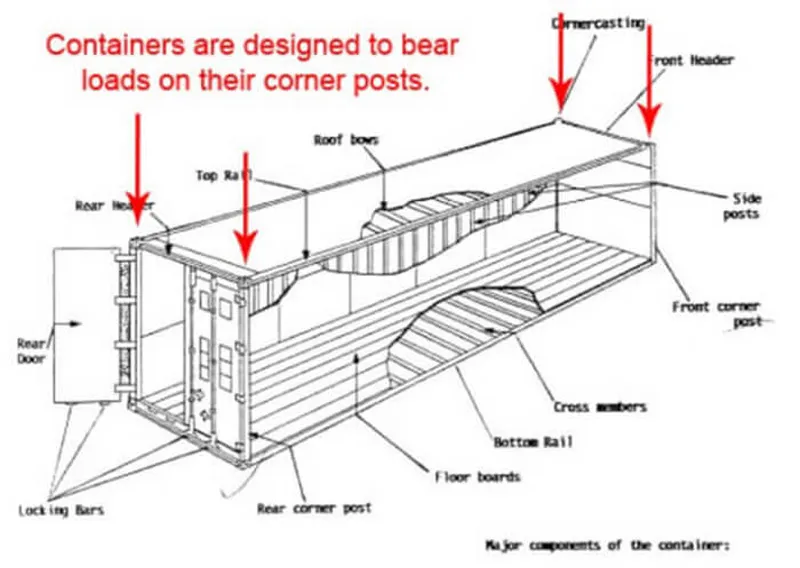
One of the most interesting aspects of Wayne's project is that with a little bit of money and some resources, anyone can do this themselves. Instead of creating his own secret bunker, Wayne decided to share his masterpiece with the world, down to how he created it.
He even shared the specs of his container, noting the aspects that builders will need to pay close attention to if they attempt to recreate it themselves. Wayne even provided some tips he learned along the way.
A Few Tips

While Wayne was finished with his bunker, he did share a couple of tips or recommendations for people who might also try to install their very own bunker. One of his suggestions is adding handrails down to the stairs for security. Frankly, that's a great idea, especially if you live somewhere cold where those stairs could get icy and slippery.
Also, he said that it might make sense to build a small overhang over the entrance. Again, this would be a great idea if you live somewhere where the elements could leave your stairs icy or even fill the hole with rainwater. Also, it wouldn't be a bad idea to help keep critters out of your walkway.
He's Not the Only One to Have This Idea
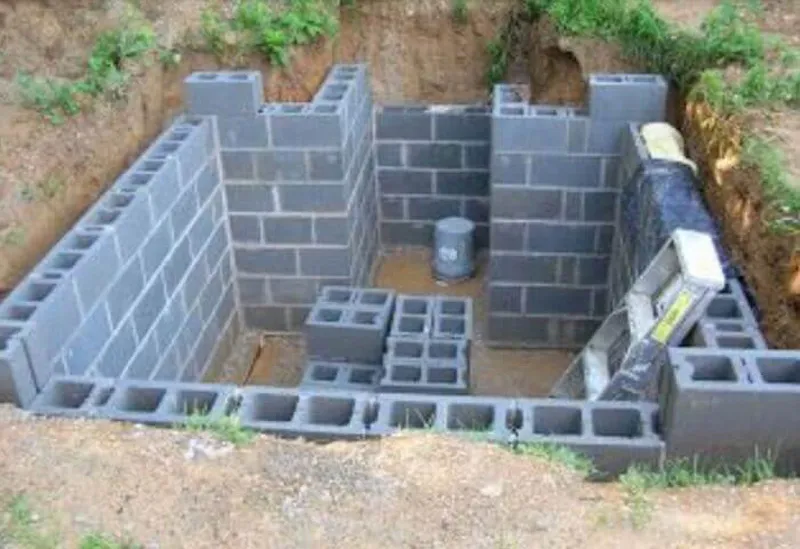
Although we're not currently fighting a war on American soil, many people still have bunkers in their homes. During the Cold War the federal government recommended that people create fallout shelters and bunkers in their basement, or buried in their backyard.
They recommended using as much concrete as possible, and a strong roof. During the 1960s, the shelters weren't designed very well, but now people have more access to information and resources. So how many Americans have bunkers today?
The Bunker Business is Booming
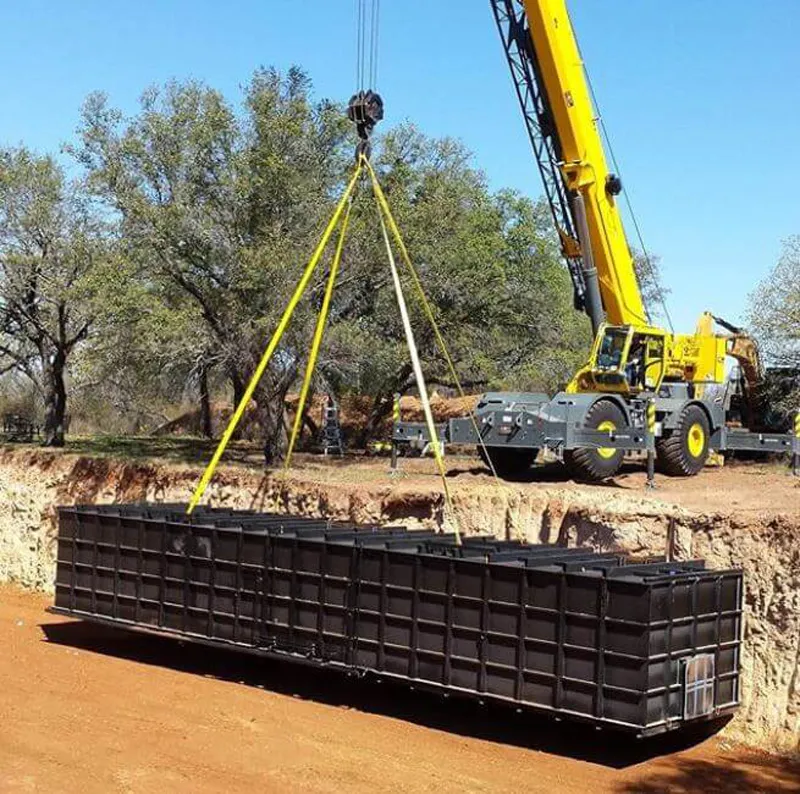
In early 2017, container and bunker building companies saw their business greatly increase. Americans were compelled to prepare for a war-time situation as foreign relations tension and uncertainty of the future grew.
Clyde Scott, who owns Rising Bunkers, a bunker building company based in Texas, said business was at an all-time high in 2016-2017. His sales have increased an incredible 400 percent, according to Independent and have grown to a $10 million a year business.
What Did This Cost?

In the end, all of Wayne's hard work came at a price, but it's way more reasonable than you might think. All in all, Wayne spent $12,500 on his DIY bunker, which is insanely reasonable.
He did say that he did most of the work all by himself, and he did have his own tractor, which likely helped with things like filling in the soil and even digging the hole in the first place. This is one resourceful way to go about creating a bunker. Other people are turning to the emerging bunker companies that will help build one for you.
The Upper Middle Class is Getting Prepared

President and CEO of Utah Shelter Systems, Paul Seyfried says their bunker business has been very busy in recent years. Although his customers are all over the country, Seyfried said the majority are ordered in New York, California, and Texas.
Seyfried told Fox13, "The smallest shelters start at around $50,000. The largest shelters we build, a 12 [foot] by 50 [foot] usually runs right around $100,000." Most customers are building the bunkers for their families, and are able to deflect electromagnetic pulses and radiation.
Bunkers for Sale in South Dakota

Vivos xPoint is a decommissioned army base located in South Dakota. It hasn't been used since 1967, but now there are plans to utilize the war-era bunkers once again, this time for citizens. There are an incredible 575 concrete bunkers located "off-the-grid" in the grasslands, near the Wyoming border, and they're planning on building more.
Bunkers here are available to lease for $25,000 for 99 years, plus $1,000 annually. They're spacious at 1,590 or 2,120 square feet. However, there's no plumbing, electricity, or air filtration, so they need some work.
Several Options to Choose From
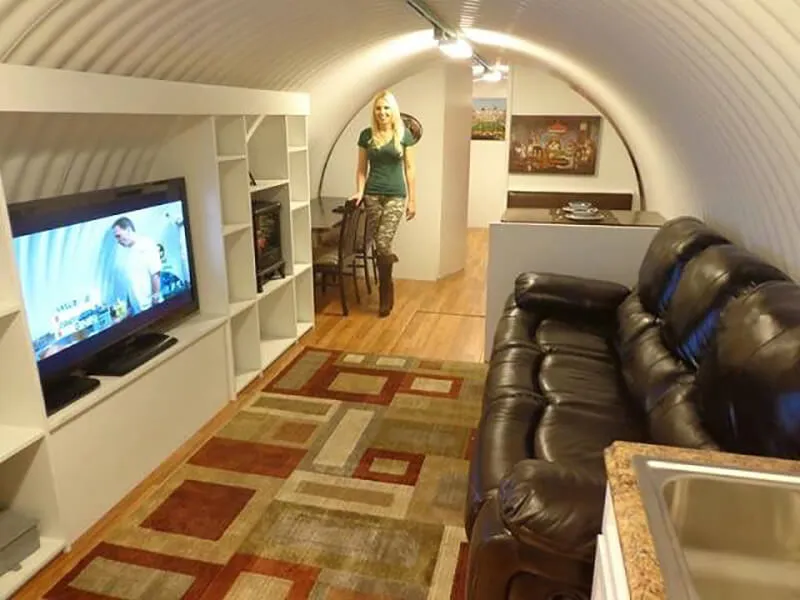
Atlas Survival Shelters, based in California, said it sold 30 shelters in three days when Donald Trump took office. Compare that to the 10 they sold in the entire year of 2011 and it's easy to argue that interested has increased.
The bunkers they create are designed to include the comforts of home. So if you're wanting to take shelter without feeling like you're hiding in an unfinished basement, this is a good option. Many of their customers are baby boomers who remember the threat of a nuclear or missile attack from when they were younger and want to be prepared.
An Ordinary Real Estate Transaction

John Sims wasn't expecting anything out of the ordinary when he bought his new home located in a midtown neighborhood of Tucson, Arizona. But buying the home turned into one of the most astonishing events of his life, thanks to a disturbing rumor about the house and a curiosity about it that just wouldn’t quit.
There was supposedly something buried in the backyard, according to the home’s previous owner. John just couldn’t rest knowing that there could be a secret buried somewhere out there, and he set out to find it. Read on to learn more about John’s quest to unearth a decades-old mystery.
Handing Over The Keys

The house that John Sims bought was formerly owned by someone who was a friend. John felt secure in his purchase knowing that this friend had already lived there and would have told him if there was anything wrong with the house.
But after John closed on the property, his friend said something unexpected. He told John that there were weird rumors about the house, rumors that involved a mystery surrounding something that was supposedly buried in the backyard years earlier.
What To Do With This Knowledge?
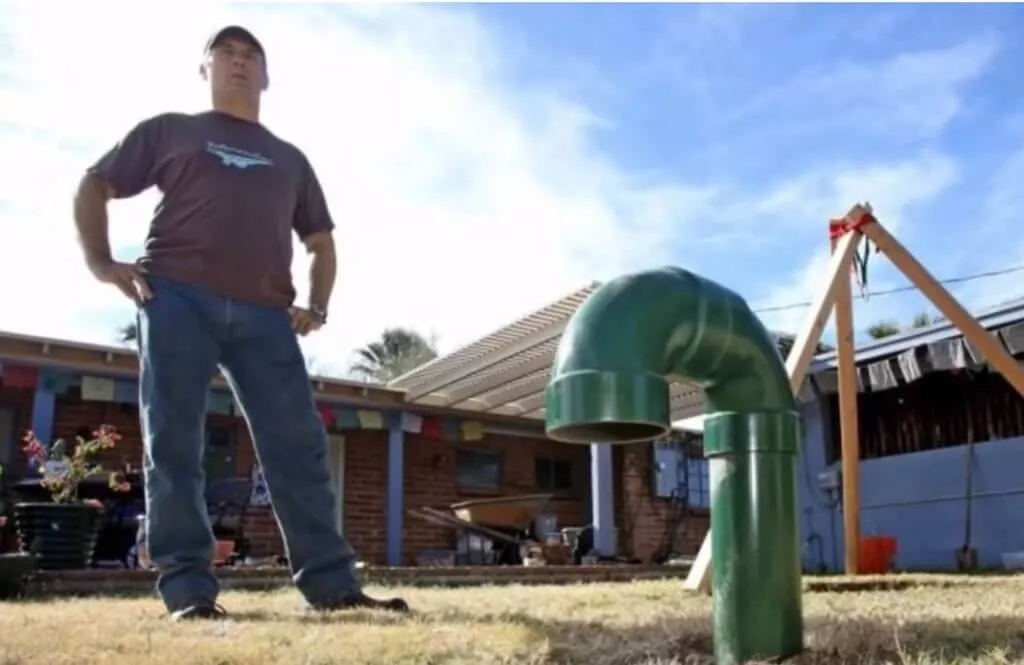
John's friend, who had previously owned the house John just purchased, had told him an exciting, yet creepy, hint about the property. But it turns out that the friend had never invested the time to find out whether the rumors were true.
As John set about unpacking and the other routine tasks of settling into a new house, he couldn’t stop thinking about his friend’s words. He just had to find out for himself what was going on in his backyard.
The Mystery Was His To Discover

Now that he had become a bit obsessed with the hint of a mystery surrounding his new home, John realized that he was going to do whatever it took to get to the bottom of things. In fact, he'd been so intrigued when the friend first mentioned the home’s secret that he’d jokingly asked to borrow a shovel.
Soon he’d realize that it would take more equipment than a single shovel. And although John had no idea what exactly he was looking for, he decided to investigate.
No Idea Where To Start

John enjoyed thinking about the mystery encased in his backyard. What could it be? He knew it was possible that there was nothing to the rumor and that he might not find anything. But he also knew that he could end up finding something amazing.
Not able to stand the uncertainty anymore, John thought about what he was going to do next. He could fill in any holes and repair his lawn later. The task at hand was more important than his yard's appearance. So he got out a shovel and started to dig.
A Triple-Digit Threat
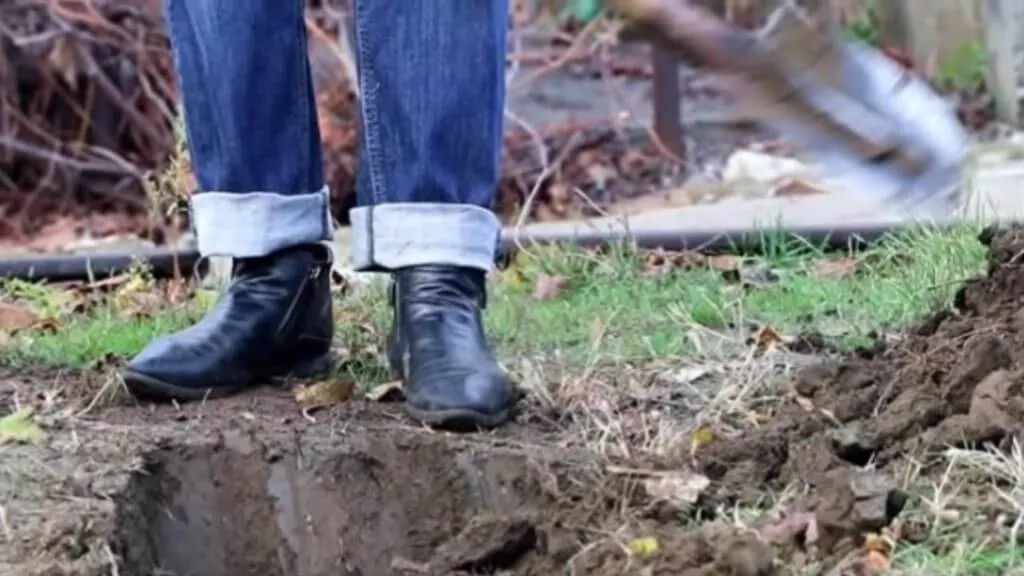
John was so determined to get to the bottom of these rumors that he was willing to overcome a lot of difficulties. Tucson, Arizona gets hot in the summer – as in triple digit hot. Those kind of conditions are dangerous to work in.
Many people would have given up at this point. But undeterred, John continued on with his mission. With his shovel in hand, he dug. And dug. He hoped this hard labor would pay off.
Holes Dotted The Yard

John had no plans in place when he began his laborious digging. He just starting digging hole after hole in his backyard. After he had excavated four different holes, pretty much ruining his yard, John still hadn't found anything.
He started to worry that if there was in fact something to find out there, that he might have destroyed it with his digging. Disappointment set in and John temporarily gave up hope of finding his yard’s hidden mystery.
Idea Strikes

John's temporary discouragement and break from digging led him to think about his situation in a different light. He had a new idea, one that could finally help him locate his home’s mysterious treasure.
He tracked down Tucson’s municipal records and reviewed page after page until he located information about his own home. John was rewarded in a big way for all this intensive research. He received some more clues about what might be lurking under his lawn.
New Clues

The Tucson municipal records provided John with the information he already knew, like the year his home had been built. But thanks to a rough sketch in the documents, John learned something new.
According to the records, a company called Whitaker Pools had applied for a permit to work at the property back in 1961 – more than 50 years earlier. But John's home didn’t have a pool. So what exactly had the pool company done there in 1961? The answer to that question surprised everyone.
The Mystery Deepens

Now that he had a sketch and more detailed information, John knew he had to go about his search in a more careful way. No more careless digging with his shovel based on his instincts alone! No, it was time to get serious.
So John hired a team of consultants, who arrived armed with all the proper tools including metal detectors. Hopefully, they were going to get to the bottom of this mystery once and for all.
Would The Metal Detectors Find Anything?

As the search turned more measured and focused, John hoped that he would soon learn whether those old, mysterious rumors about his new house were true. But as the team of consultants worked over different areas of his backyard, the metal detectors remained silent.
The tension mounted as it appeared that the consultants would also come up empty-handed in their search. But then the detectors began to go off. The sound was music to John's ears.
Multiple Sites To Explore Further

John was overjoyed to hear the experts' metal detectors pinging in the hot Arizona air. And in further good news, the machines located not just one spot of interest, but two! After carefully marking both the locations in his backyard, John was able to briefly rest as he planned the next step of his search.
Now John’s efforts would be focused and he wouldn’t have to expend his efforts haphazardly. He could barely wait to discover what it was under his backyard.
The Shovel Comes Out Again

John grabbed his shovel and got back to the hot and difficult task of digging. This time, however, he knew exactly where to focus his efforts. With anticipation, he began to dig at the two spots that the metal detectors had located.
His work paid off quickly at the second site pinpointed by the consultants. It wasn't long at all before he felt his shovel hit something hard, and he heard the tell-tale scrape of metal against metal. John was so close to solving his backyard mystery.
Three Feet Down
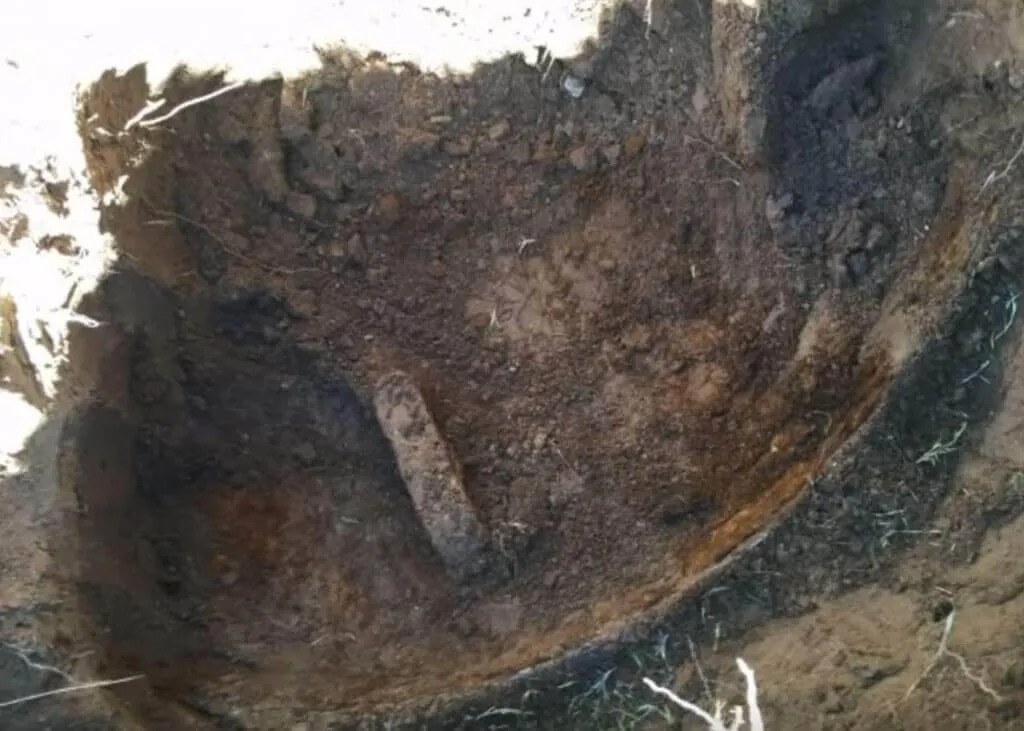
John had been digging about three feet down into the earth when he first felt his shovel hit the metal object. While he was glad to finally discover something, he began to worry that it was a septic tank that he'd found.
Not only would a septic tank be a disappointing find after all this time and work, but it also meant that John had to be extra careful when he continued to dig around it. Damaging a septic tank or breaking a pipe would be very bad news, indeed.
It Wasn't A Septic Tank!

He continued to dig, more carefully than before. To John's great delight, he realized that the object he’d found wasn’t a septic tank after all. No, it was something much, much more interesting than that.
He gingerly used his shovel to uncover the structure. It wouldn’t be long now before John’s discovery was out in the open and ready to inspect. The anticipation of this made the time pass quickly as John worked.
More Questions To Answer
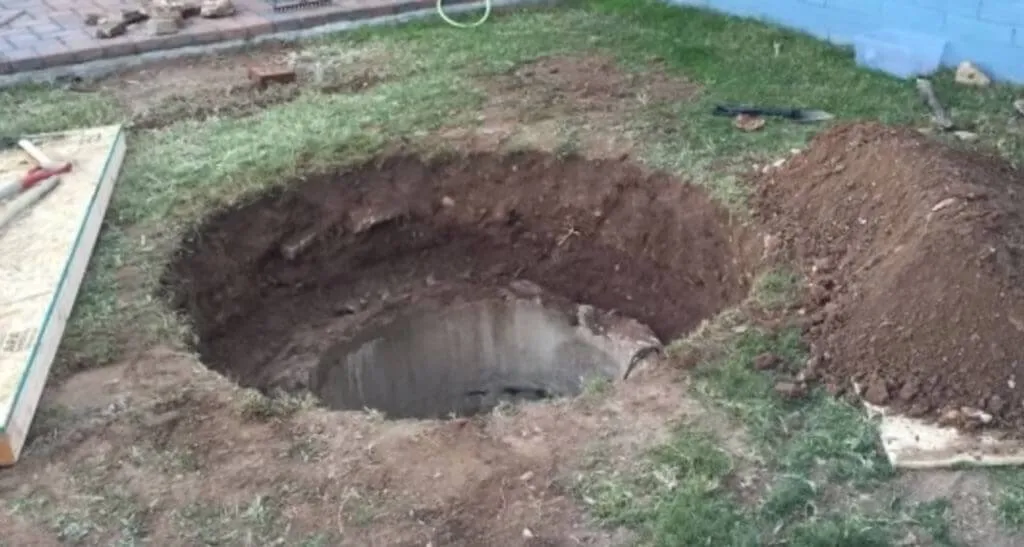
John had finally determined that the thing buried under his new home's backyard wasn’t a septic tank. But now that he had uncovered a substantial part of the structure and could visually examine it, there seemed to be even more questions to answer than when he started his journey.
The concrete form that John had unearthed appeared to be something resembling an entryway. But where did it lead, and how did you get into it?
Closer To Getting In

John was astonished to see that his backyard contained an entryway or portal of some sort, buried deep under the ground. He was so close to getting to the bottom of the mystery!
He continued to clear the area of earth and discovered that the entry had a hatch with a lid. He carefully pried the lid off, but his work as a fire department captain had taught him that it wasn't safe to enter the opening just yet.
A Long Day Of Waiting
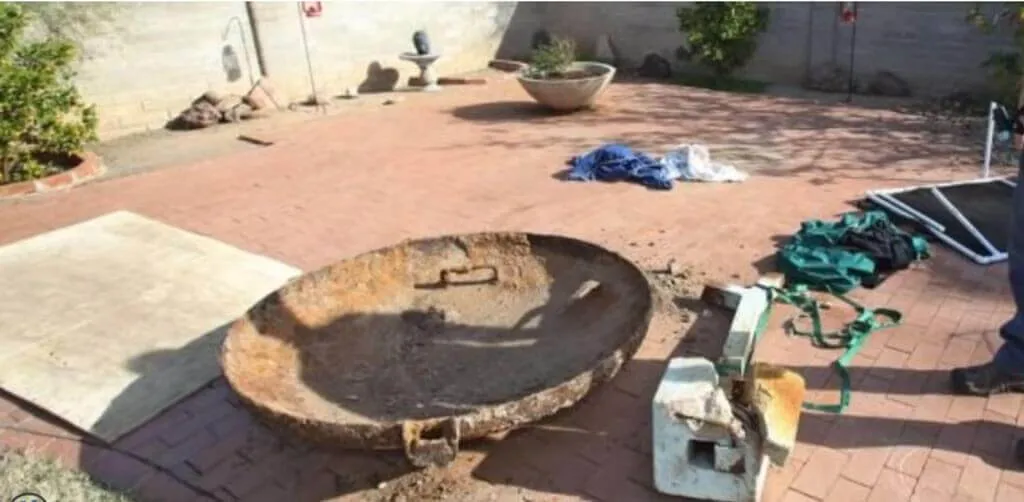
You can probably imagine how excited John was to finally get some answers about his backyard's hidden secret. But waiting a day was necessary. His fire department training had taught him about the dangers of confined spaces.
The area could be filled with mold that could be very harmful to inhale, or toxic fumes. John also knew that he needed to have several people around when he finally went underground, to assist if the structure collapsed or if he became trapped somehow.
The Moment Of Truth Had Arrived For John

After a wait that must have felt excruciating, it was finally time for John to enter the hidden space beyond the hatch. The moment of truth had arrived for this backyard explorer – he was going to learn what exactly was down there.
John got down and cautiously looked into the hole framed by the metal hatch. The sight that met his curious eyes was completely unexpected! So what was it?
What Is It?
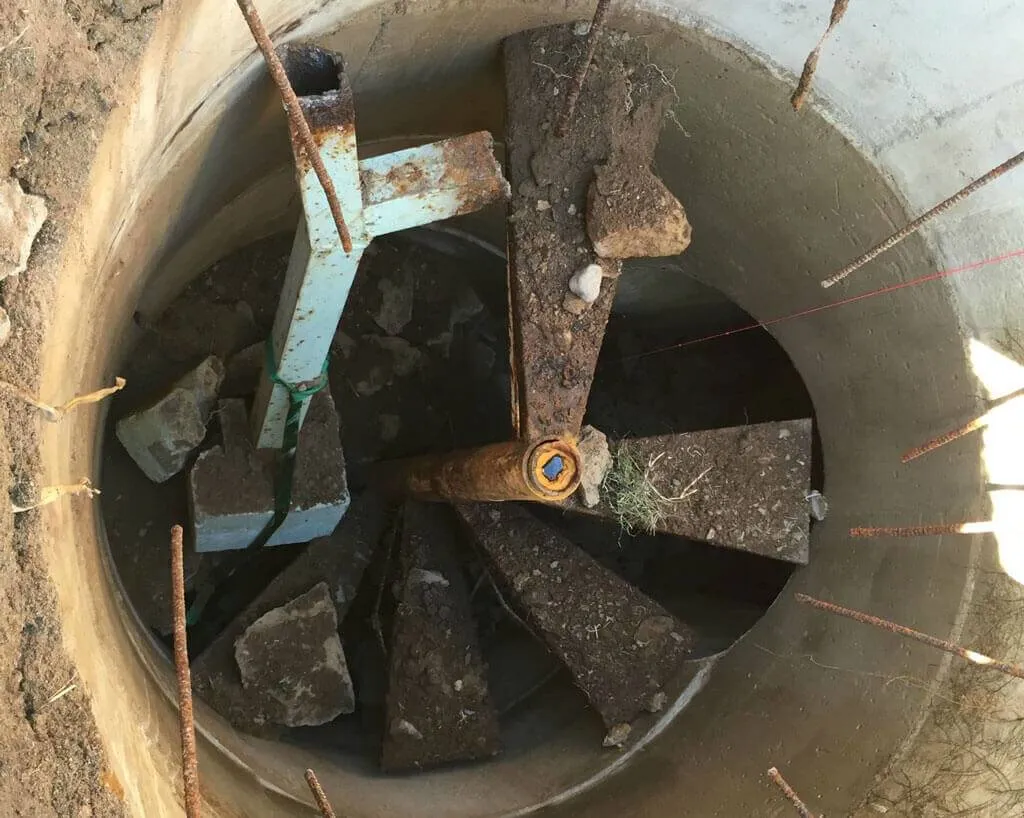
When John first looked down through the hatch, he was completely astonished at what he saw. It appeared to be an arrangement of sharp metal blades. What could their purpose be?
It wasn't long before his eyes adjusted and he was able to make out what it was that he was really looking at. The seemingly random metal blades were actually part of a spiral staircase, leading even deeper down into the earth under John’s property.
A Risky Proposition

In his anticipation, John might have rushed right down the spiral staircase that he'd just uncovered in his backyard. After all, the truth behind the mystery was so close he could almost touch it.
But he did not. It was both his training as a fire captain and his good common sense that stopped John from entering the underground space that he’d found right on his own property. There were just too many risks involved.
Satisfaction, Delayed

What were the risks of simply walking down the spiral steps leading down into the earth? Well, for starters the structure just wasn't stable. It had been built more than 50 years before John uncovered it, and he had no idea what condition it might be in.
And second, John knew it was best if there were people with him when he finally went down the hatch. They could help him out if he became trapped or if the structure collapsed. So he assembled a team of friends to help him make the structure safe to enter.
A Plan Comes Together

John was playing it safe with his backyard find. Even though he was filled with excitement at the prospect of finally solving the mystery, he knew that his safety was more important than immediate gratification.
Along with his trusted friends, John came up with a strategy to proceed into the underground space safely. Their patient planning was soon going to pay off in a very big and unexpected way. And luckily they documented the discovery along the way to share the details of their findings.
Preparing The Passageway
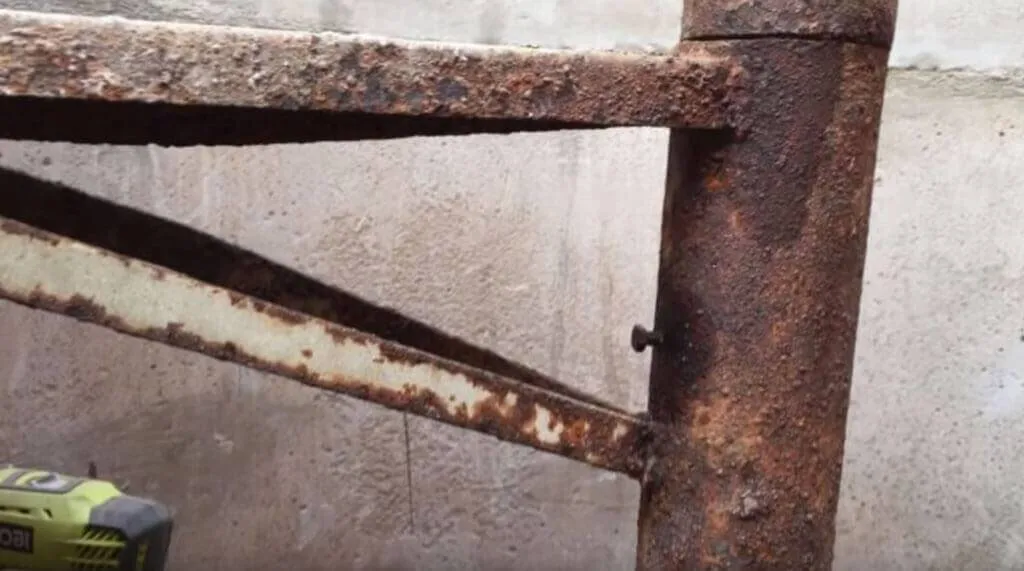
John had no earthly idea what condition the structure might be in, after sitting unused for decades. So he knew that he and his friends needed to reinforce the entire concrete entrance and repair it where necessary.
The spiral staircase leading down into the underground space also needed some serious attention. The metal steps were almost completely rusted through and not safe to stand on yet. They could even collapse if someone tried to use them in their current condition.
Solid As A Rock

John Sims and his friends widened and reinforced the entryway around the stairs with new rebar and multiple layers of concrete. To ensure entrants' safety, this step was absolutely necessary. The risk of a structural collapse was too great otherwise.
Their curiosity and excitement kept them going as they poured layer after layer of concrete. And their task was made all the more unbearable in the Arizona heat. They put up a tent to help block the sun and keep the temperature relatively cool.
Still A Couple Of Tasks Ahead
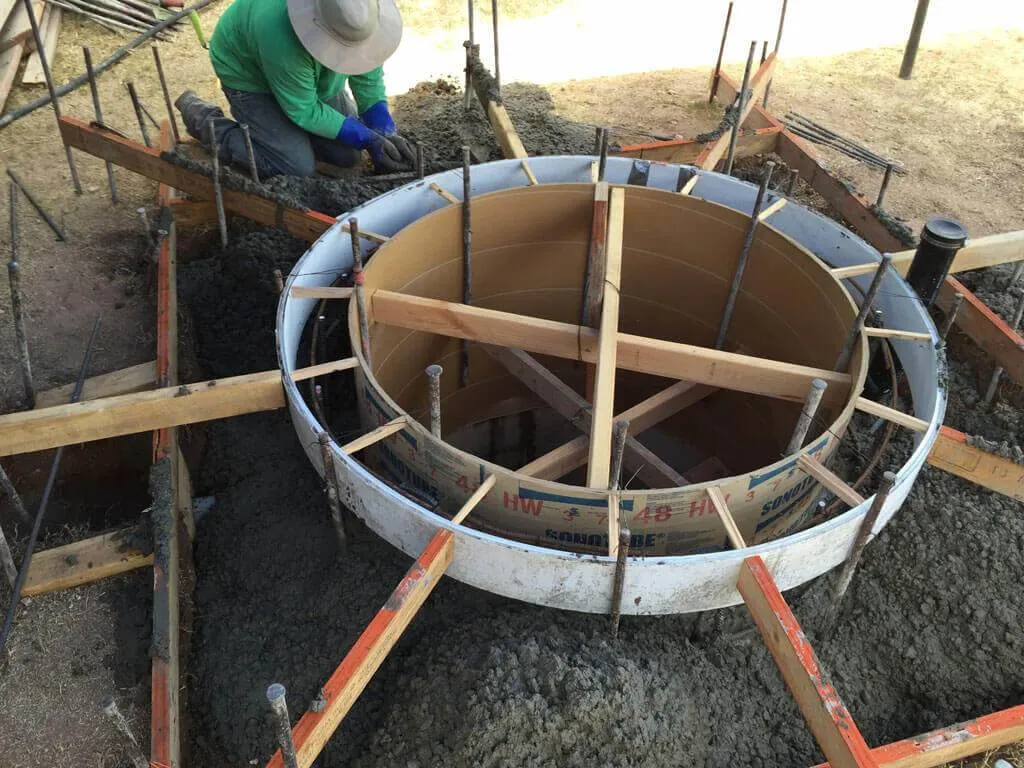
John is obviously the type of person who thinks ahead. He knew that when he was finally, at long last, able to enter the mystery structure in his backyard he needed to be able to see. Many people would just rush ahead with a flashlight, but not John.
So he installed an electrical line that would allow for the space to be illuminated. He and his friends could also use power tools down there if necessary, once the electrical line was complete.
A Breath Of Fresh Air
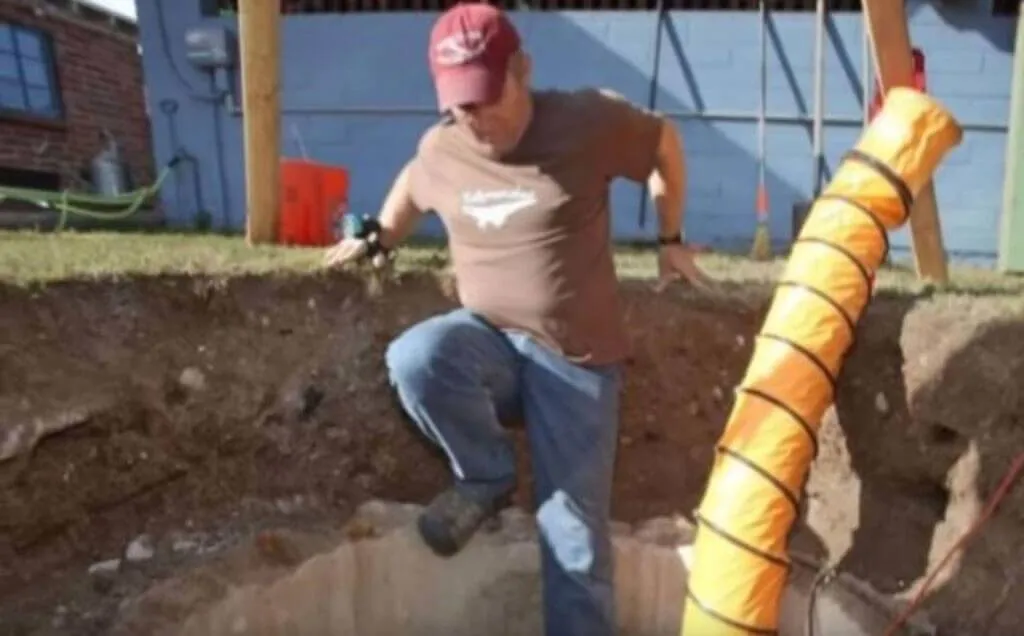
As we've read, John’s work as a firefighter made him very aware of the danger of tight, enclosed spaces. Mold and gas leaks were a major concern in the 50-year-old structure he was about to enter.
John and his friends placed a pipe in the entryway. It would funnel fresh air down into the space, making things that much safer when they finally got to go in. It was almost time for everyone to see the secret that had long been hidden in John’s backyard.
One Last Step

Unfortunately, John and his friends weren't able to repair that rusty spiral staircase yet – they’d have to be fixed from within the space. It was too risky to put any weight on the steps, since no one knew how sturdy they might be. So how would people descend into the space safely?
John had the solution. He got a tall ladder and securely placed it in the entryway. He was finally going to learn what was down there.
The Wait Was Over
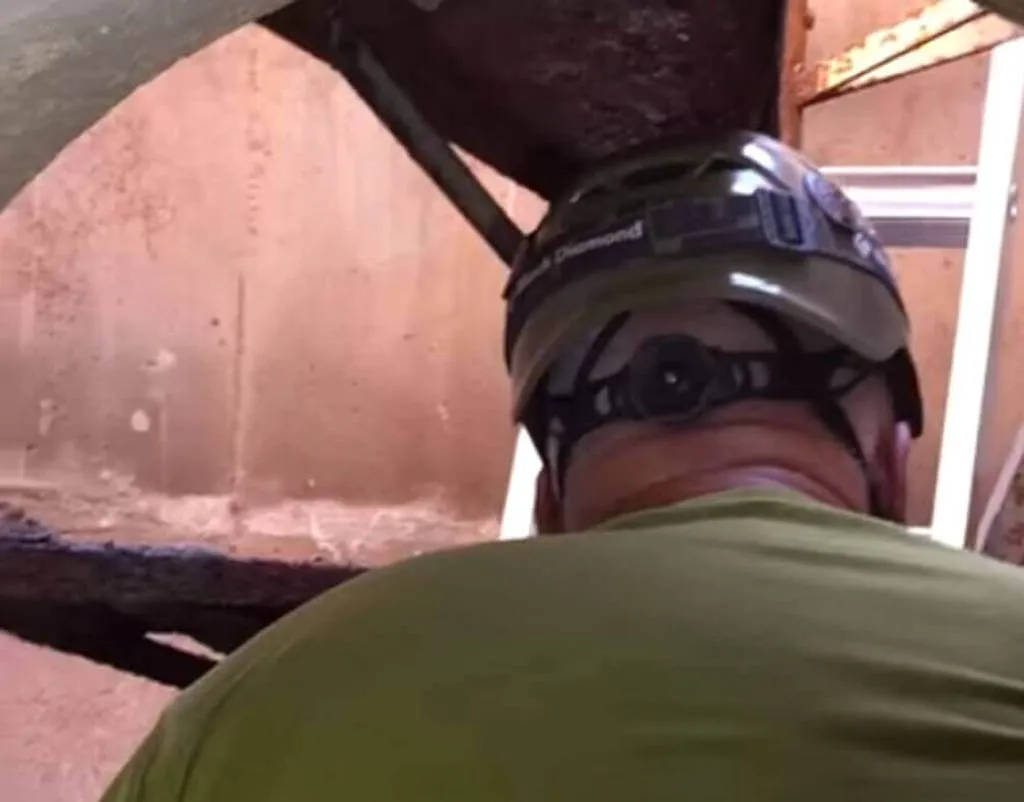
At long last, John got to uncover the secret that he'd heard his friend talk about. He’d been nearly obsessed with learning the truth behind the rumor and had worked very hard to get to this moment.
He was about to climb down the ladder and into the mysterious hole in his backyard — the first person in 50 years to do so! As John descended, his imagination ran wild. Just what was he about to see?
Stepping Down Into Space
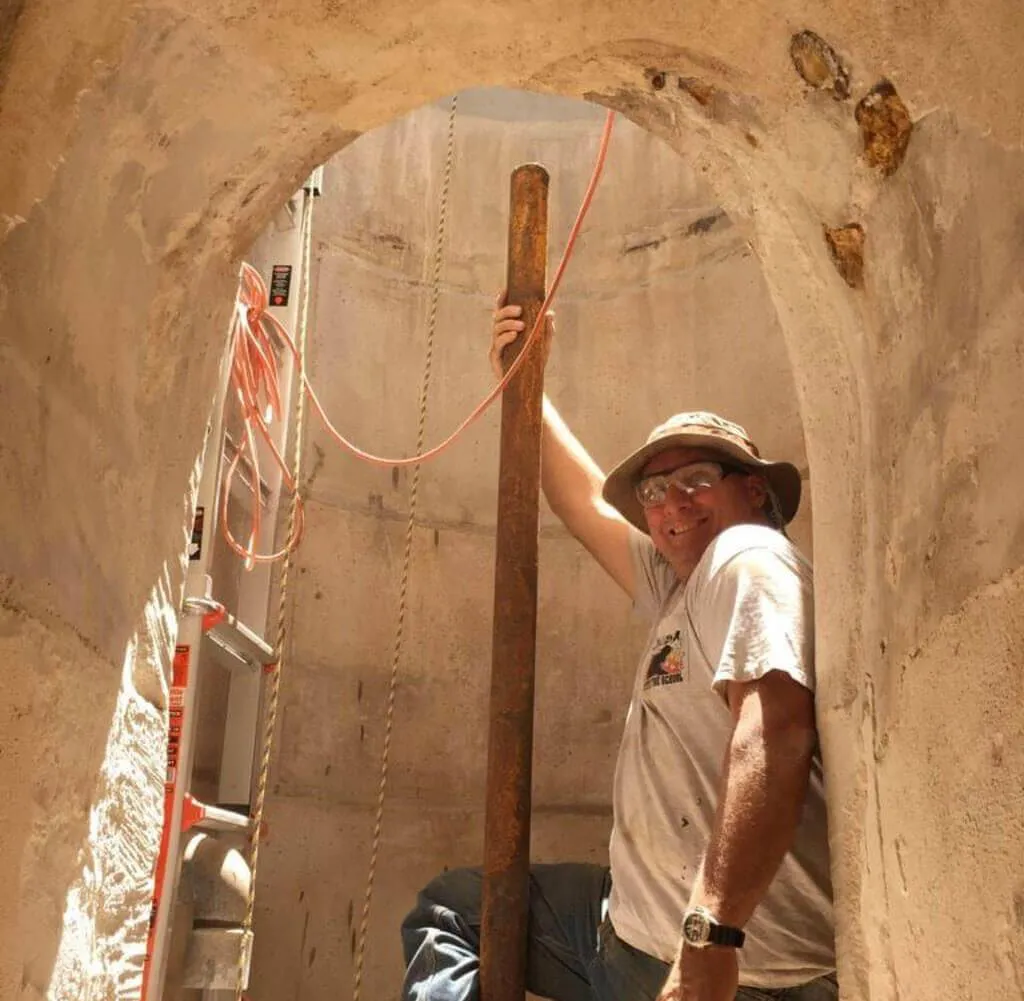
John lowered himself down the ladder, rung by rung, as his excitement grew. He stepped off the ladder and was finally rewarded for all his hard work.
He was shocked to learn that there was a vast room deep underneath his backyard! And it was in good shape, complete with a solid floor. But that wasn't all. In fact, there was an entire system of tunnels forming a complex down there!
The Rumors Had Been True
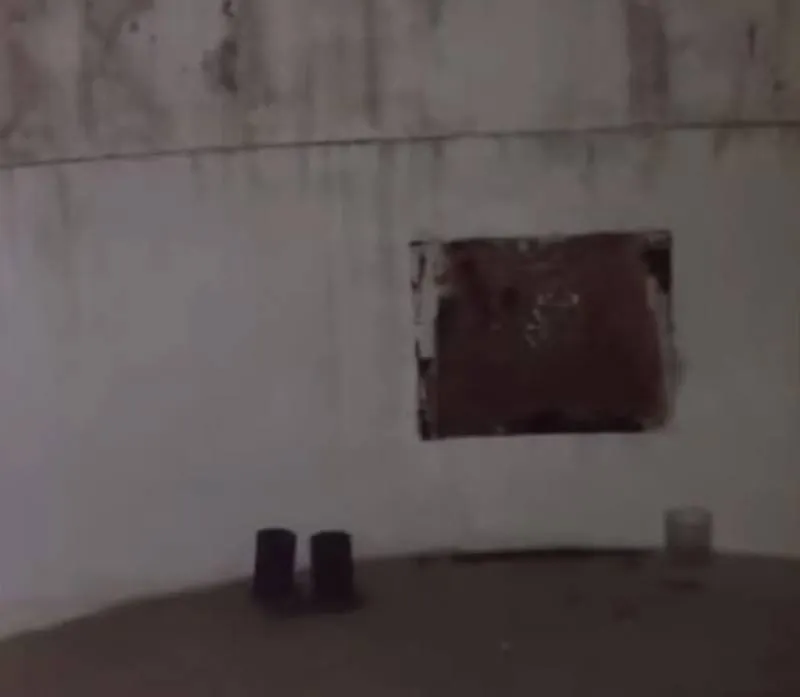
John's friend, the former owner of the house John recently purchased, had told him about the existence of a secret buried deep in the backyard. Through research, John had learned that the structure in question had been built by a company called Whitaker Pools.
But this underground cavern was clearly not a pool. The year it was constructed, 1961, was a huge clue to the structure’s intended purpose. And John knew what that purpose was as soon as he laid eyes on the space.
The Years Had Taken Their Toll
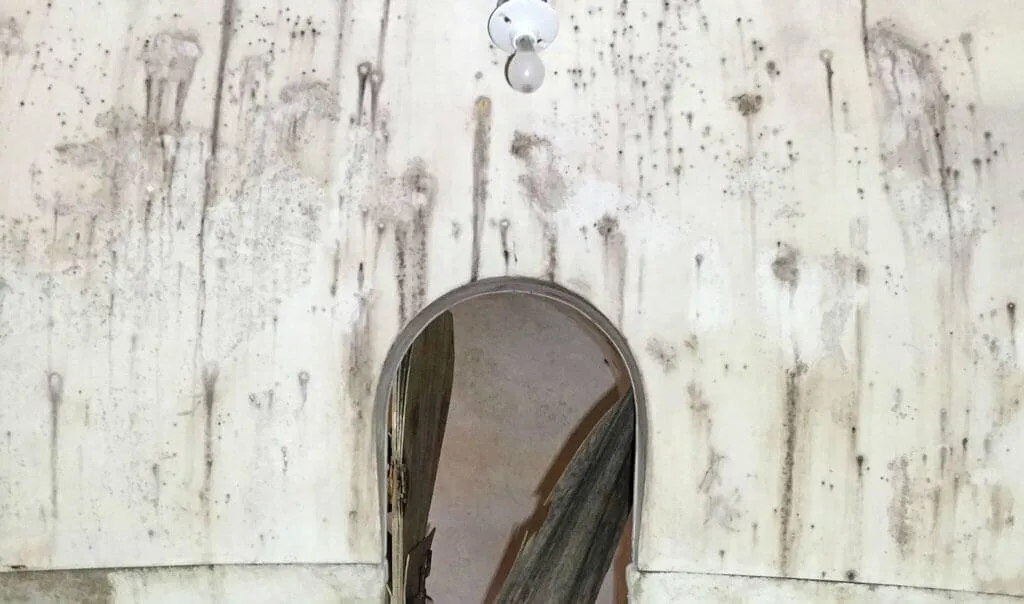
Although the structure seemed to be in pretty good shape given its age, one thing was a giveaway to John that he still had some work to make the space safe. The clue was in the fiberglass ceiling.
Fiberglass can be extremely toxic to people if they breathe it in, and is an irritant to bare skin. And the fiberglass in the ceiling was coming apart – not a good thing at all. But it was something that could be repaired, fortunately. And John wasn't ready to give up on his new find anyway, after all the work he had put in.
A Relic Of The Cold War
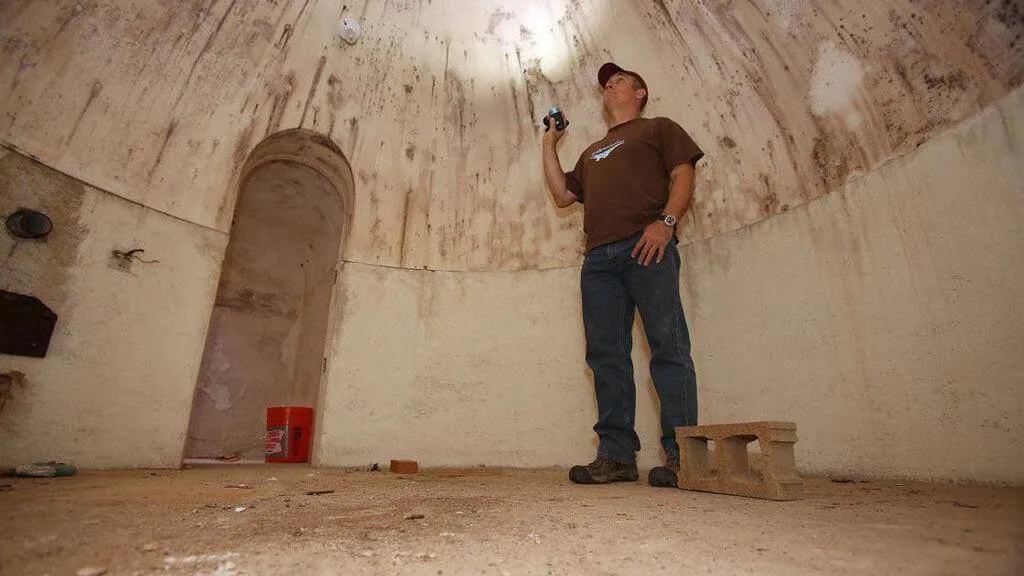
The structure below John Sims' house, although huge, was empty of furnishings or any other décor. It became obvious immediately that the underground bunker was built as a nuclear fallout shelter.
Many people had grown fearful, even paranoid, during the period of Cold War hostilities between the Soviet Union and the U.S., and had built backyard shelters as a result. But why had a company called Whitaker Pools built a nuclear bunker?
Doing Double Work

It turns out that Whitaker Pools had responded to consumer demand during the Cold War and had added building backyard shelters to its list of services. In fact, this was pretty common across the country.
As pool builders realized that building fallout shelters wasn't all that different from building inground pool shells, many of them expanded their operations accordingly. By 1961, one Los Angeles company called Catalina Pools had built 500 shelters!
A New Underground Opportunity
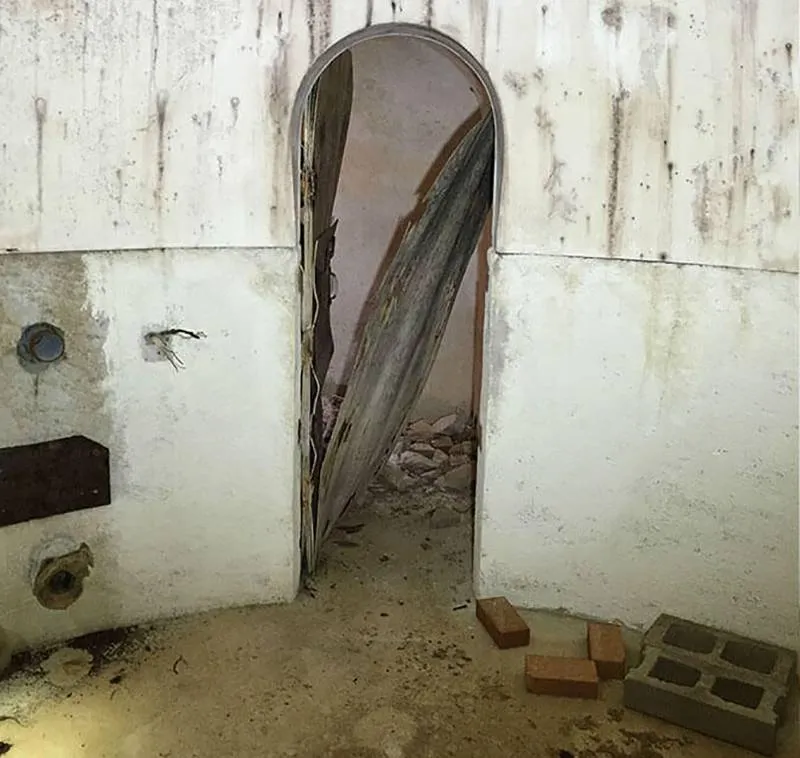
What would you do if you discovered that you had an enormous maze of rooms buried right in your own backyard? How would you use the space? John's friends had some fun ideas for him, including a cigar bar, wine cellar, or "man cave."
Other people around the world have converted old bunkers into beautiful modern homes, hotels, art galleries, and recording studios. But John had something different in mind for his backyard treasure.
John Connected To Others With Backyard Shelters
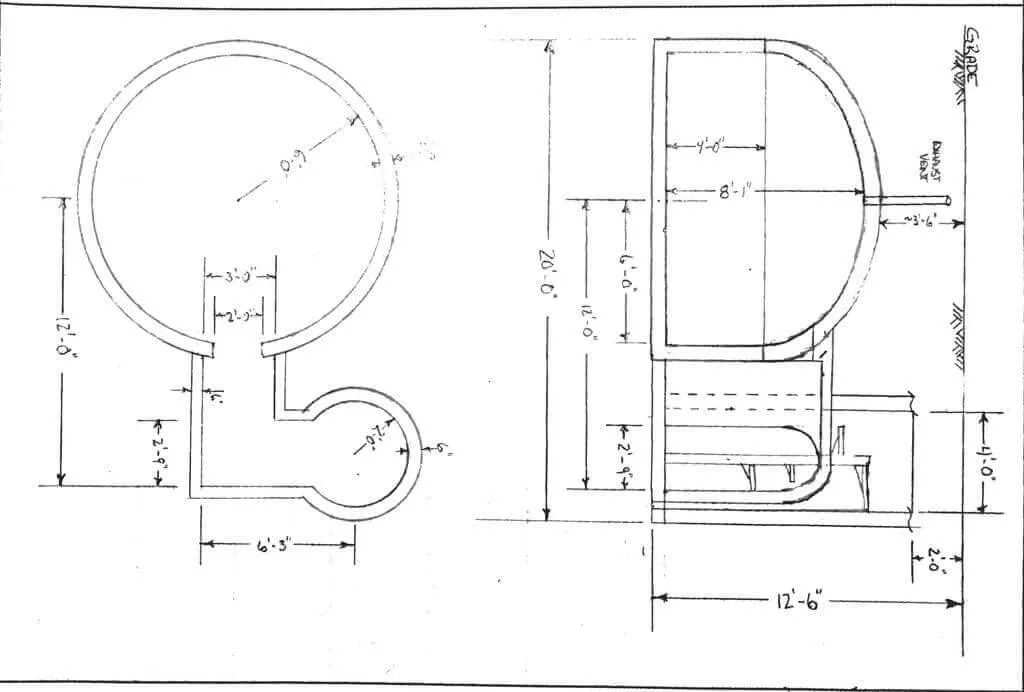
After posting about his shelter online, John Sims learned that he was in good company. His post on Reddit went viral, and he began connecting to others who have backyard fallout shelters.
His interest in these shelters, and the Cold War era, has grown. In fact, he has special plans to turn his own historical bunker into a museum of sorts – meaning he has a lot of work ahead of him. So what was the next step for John?
It Started With A GoFundMe Page

John's next step in restoring his bunker to its former glory was setting up a GoFundMe page. He wrote, "Hi, I’m John and I need some help restoring a vintage Fallout Shelter that I have uncovered in my back yard.“
He was specifically looking for assistance in reconstructing the shelter’s entryway, since that needed to be done before he could start making repairs and improvements downstairs. He elaborated, “the upper entry needs a large concrete pour to secure the entry and the metal circular staircase needs to be replaced." John estimated that the project would cost around $2,000.
The Stairway Is Complete!
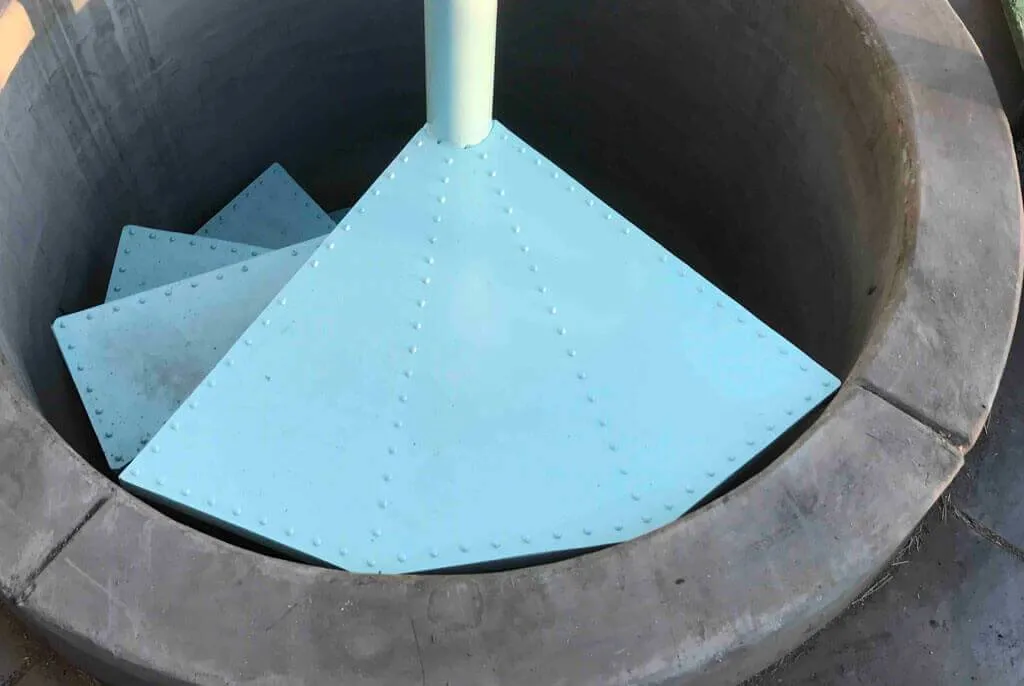
Although John's GoFundMe campaign was widely shared and he received several hundred dollars in donations, the goal of raising $2,000 for the stairway rebuild ultimately fell short. Of course, that didn’t stop John from proceeding with his plans! He even took time off from his job to work on the all-important staircase.
After sharing a series of updates on the project, John reported that the entry area was finally done: "Stairs are finished! Now it’s easy and safe to climb in and out." He also posted a photo of the completed stairs, which are painted an appealing shade of blue.
Now That The Stairs Are Complete

On his GoFundMe page, John shared further details for his shelter now that the staircase and entryway are done. "My plans are to clean up the interior, repaint it and turn it into a really cool man cave, HAM shack, and Civil Defense Museum."
He continued, “Once I started this project I researched a bunch about the Cold War period and how the civilian fears prompted many people to build these shelters.” Discovering this bunker has clearly made a big impact on John's life!
Stocking The Shelter With History
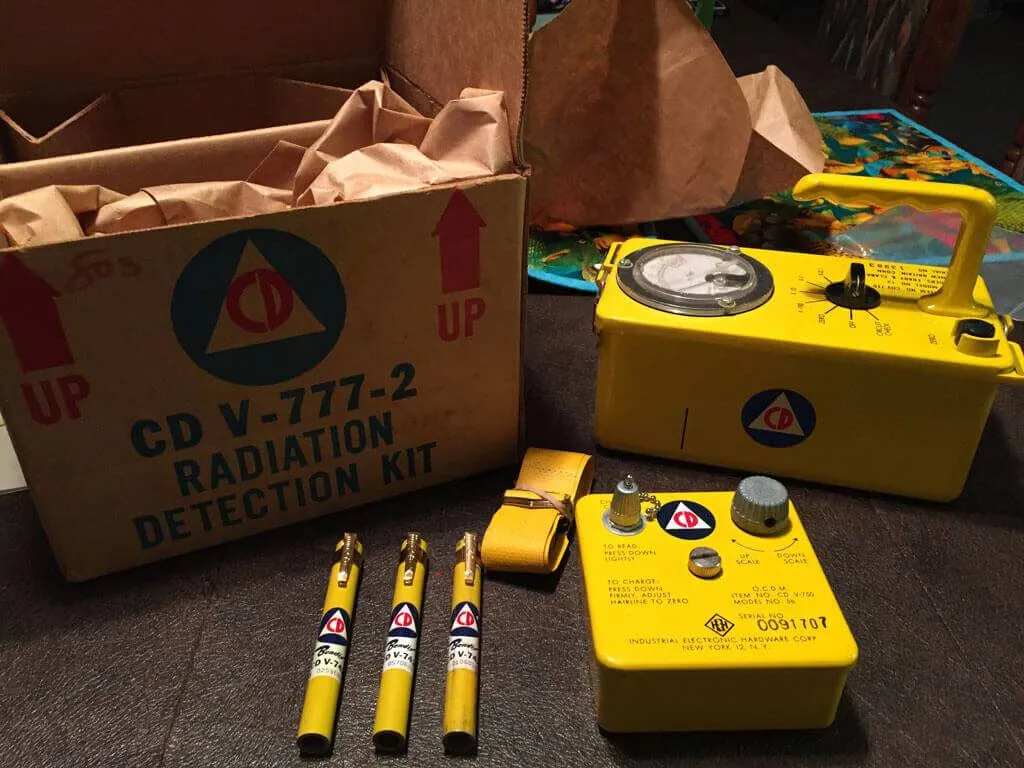
John has already begun amassing supplies and props for the museum portion of his backyard shelter. He says that he's found artifacts like water supply barrels, Geiger counters, HAM radios, and sanitation kits to display.
Pictured here are some of the items John plans to display at his museum. It’s impressive that he was able to get a hold of so many vintage pieces that were in excellent condition to teach others.









